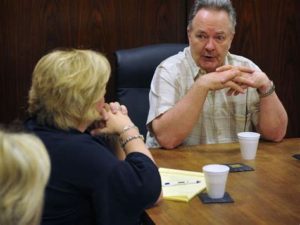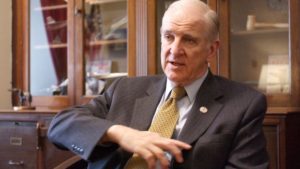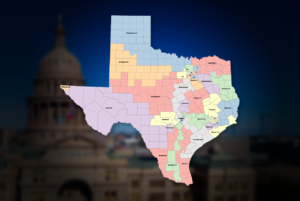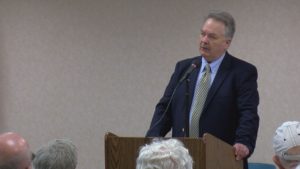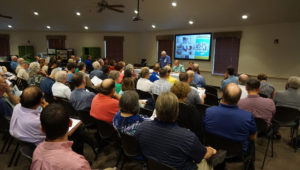
I want to share a moment regarding my one direct contact with the Cable-Satellite Public Affairs Network . . . aka C-SPAN.
I’ve already sung the praises of Brian Lamb, the founder of the one national network that covers politics and policy without a hint of bias.
Take another look.
But the folks who put together their video presentations are masters of editing, cutting, pasting and making subjects look a whole lot smarter than they really are. In my case, that’s not all that difficult.
I arrived in the Texas Panhandle in January 1995 to take my post as editorial page editor of the Amarillo Globe-News.
That spring, C-SPAN embarked on a project called the “School Bus Tour.” It was sending a yellow bus to every congressional district in the United States. All 435 of them would get a visit from the C-SPAN school bus. Its intent was to educate viewers on the members of Congress representing their constituents living in each of those districts.
The 1991 Texas Legislature had gerrymandered the congressional map in Texas to give Amarillo two House members. The 13th Congressional District comprised the northern portion of the city; the 19th District comprised the southern portion.
The lines were drawn that way to protect the Democrat — Bill Sarpalius — who represented the 13th District. Democrats controlled the Legislature back then, so they sought to rig the lineup to protect their own. The tactic worked until the 1994 election, when Republican Mac Thornberry upset Sarpalius.
But the 19th District remained strongly Republican and was represented by U.S. Rep. Larry Combest of Lubbock.
C-SPAN called one day and wanted to know if I would be willing to be interviewed by the network about the 19th District. I was to talk about Combest and the district he had represented for the past decade.
Holy crap! I thought. I didn’t know much about the district, or about Combest. I was brand new here. I’d lived for the 11 previous years in the Golden Triangle region of Texas, which was represented in the House by Democrats Jack Brooks of Beaumont and Charlie Wilson of Lufkin.
I accepted the offer, then cracked the books to learn more about the 19th Congressional District and about Rep. Combest.
C-SPAN’s school bus crew met me at the newspaper office one Saturday morning and I talked for about 30 minutes or so with a camera rolling. I stuttered, stammered, paused, stopped-and-started my way through it. Hey, I’m not a TV guy.
I was frightened by the prospect of how it would look on TV. The producer assured me, “Don’t worry. You did just fine. We’ll take good care of you.”
Well, they shot their B-roll video, showing scenes of feed lots, ranch land, wind mills and such from around the sprawling district, which stretched from Amarillo all the way to Lubbock, about 120 miles south of us.
They told me when the segment would air.
I waited for it. Sure enough, they managed to make me sound a whole lot more polished than I really am.
What’s more — and this is the real beauty of this kind of skill — they preserved the essence of every comment I made. There was not a single phrase that was aired during the three-minute segment that was out of context or didn’t convey my intended message.
I would have a similar experience later, during the 2008 presidential campaign, with National Public Radio. NPR wanted to interview two journalists about the state of that campaign between Barack Obama and John McCain. I learned once again about the talent and skill it takes to edit someone’s spoken words while preserving the integrity of what one says.
Believe me, it’s a remarkable skill, indeed.
